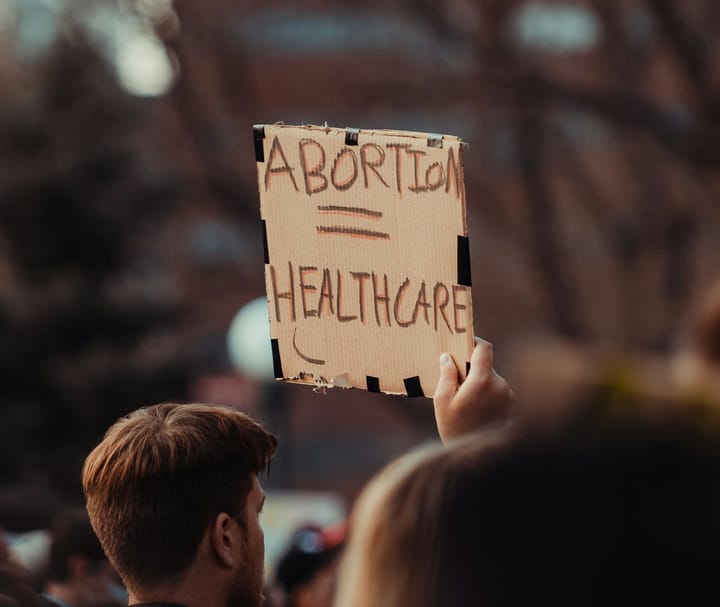The Blue States Advertising To Texas Doctors Over Abortion
This week the state of New Jersey announced a billboard campaign targeting Texas abortion providers to relocate to a state that promotes reproductive freedom.

Drivers in Houston and Dallas might be noticing a series of billboards aimed at promoting New Jersey. But the travel campaign has nothing to do with Bruce Springsteen or The Sopranos, instead the billboards are highlighting the reproductive freedom available in the Garden State.
This week the state of New Jersey announced a billboard campaign targeting Texas abortion providers to relocate to a state that promotes reproductive freedom. The billboards are currently up in strategic locations in Houston and Dallas near prominent hospitals or medical centers.
In recent years New Jersey has followed the lead of blue states in shoring up abortion protections. In 2022, months before Roe v. Wade was overturned, Governor Phil Murphy signed the Freedom of Reproductive Choice Act, which codified reproductive choice in the state.
“I know how absolutely critical it is to take care of your patient without having to ask a lawyer if what you’re doing is still legal,” said Dr. Kaitlan Baston, the Commissioner of the New Jersey Department of Health about the campaign. “New Jersey’s constitution protects reproductive rights, and we support the people who deliver that care."
Campaigns targeting physicians who reside in states with restrictive abortion laws are not new. Last year the Governor of New Mexico announced an initiative targeting healthcare professionals from Texas to move to their neighboring state. That campaign, dubbed “Free to Provide,” included billboards around Houston’s Medical Center and full-page advertisements in five major Texas newspapers.
The current New Jersey campaign comes at a time when many medical providers in Texas are feeling apprehensive about Texas. A survey from Manatt Health last year showed that over 75 percent of OB-GYNs in Texas reported that the near-total abortion ban was impacting their practices. According to that same survey, 21 percent of OB-GYNs were either thinking about or planning to leave Texas.
In the legislature, the Senate State Affairs Committee passed an amended version of Senate Bill 31, a bill that is meant to clarify medical exceptions for abortions. Many reproductive rights experts had testified that a previous version of SB 31 could trigger a centuries-old abortion ban. SB 31 will head to the full Senate soon.
Still, SB 31 is a very narrow bill that will only address severe medical complications, not fetal anomalies or pregnancies resulting from rape or incest. The legislature will also be debating more bills restricting medication abortion this year, one that targets companies or organizations who promote those services online.
At the end of last year, Texas Attorney General Ken Paxton filed a lawsuit against a New York doctor who had prescribed medication abortion to a woman in Texas, directly targeting shield laws that blue states have enacted to protect abortion providers. An imminent showdown in the Supreme Court appears likely on that front.



Comments ()